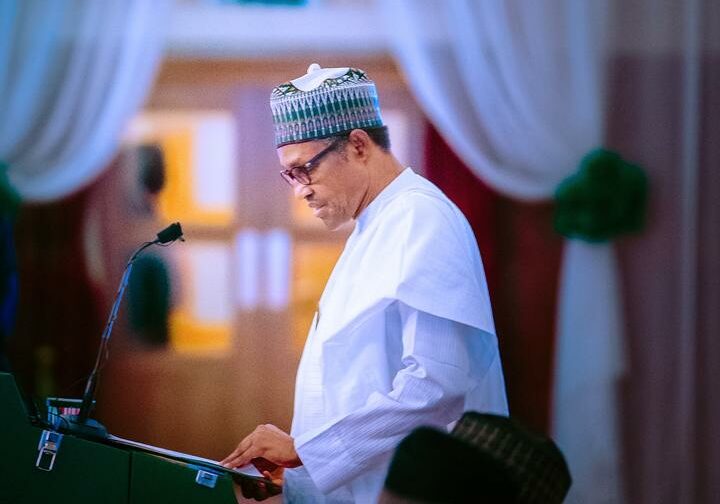National autogas initiative
In a move that signalled the beginning of the long-awaited gas revolution in Nigeria, President Muhammadu Buhari last week launched the National Gas Expansion Programme and National Autogas Rollout Initiative in Abuja. The programme has an ambitious target of enabling about 40 per cent of vehicles plying the Nigerian roads to run on compressed natural […]

In a move that signalled the beginning of the long-awaited gas revolution in Nigeria, President Muhammadu Buhari last week launched the National Gas Expansion Programme and National Autogas Rollout Initiative in Abuja.
The programme has an ambitious target of enabling about 40 per cent of vehicles plying the Nigerian roads to run on compressed natural gas (CNG).
Ahead of this, the Buhari administration had earlier in the year launched the Ajaokuta-Kaduna-Kano gas pipeline project, which will hopefully power the industries and utilities along the central and northern axis of the country.
At the launch of the programme, President Buhari stated that “it is no longer news that the vast natural gas resources, which Nigeria is endowed with have hitherto been used sub-optimally as a result of dearth of gas processing facilities and infrastructure connectivity for effective and optimal domestic utilisation’’.
Indeed, to buttress the president’s statement surveys have put Nigeria’s total proven gas reserves at 203 trillion cubic feet, which makes the country the ninth-largest in the world.
Fortuitously, the spur for this development is the deregulation of the downstream petroleum sector and the price volatilities in the global oil market.
These developments could not have come at a better time for the domestic gas market in Nigeria.
For too long, the emphasis has been directed more at the petroleum sub-sector to the detriment of its twin gas sub-sector whose potential and relevance is perhaps more far-reaching.
The advantages of a gas-powered economy are many. From automobiles to domestic and outdoor uses, power generation and utilities and industries, gas can effectively power a nation-leading to increase in all-round productivity. Gas is also cleaner environmentally and less prone to global price volatility if we can harness it effectively.
At present, Nigeria’s gas utilisation to meet all these necessities of modern life does not match both the proven gas resources as well as our vast potential market. As the president noted, the lack of gas processing facilities and infrastructure connectivity has been the bane of the expansion of the domestic gas market.
One of the first necessary steps to address this will be to provide the enabling policies that will encourage investors to grow the gas revolution. The example of the Nigeria Liquefied Natural Gas (NLNG) project, which has now become one of the most successful investment decisions of Nigeria in the gas sub-sector yielding huge returns in financial, technical and other areas is instructive here. Ironically, the NLNG, which was enabled by favourable policies for its eventual success, exports natural gas to power the utilities and industries in the countries of its customers overseas.
For the gas revolution just launched by President Buhari to succeed in its objectives, there must be concerted efforts by all the stakeholders and robustly supported by the government. Nigeria’s gas potentials with our ever-growing population and the vast unexplored market are limitless. Just as was done with the NLNG project, investors must be given incentives in form of guarantees for the protection and reasonable return on their investments.
The policies should be straightforward, consistent and reliable bearing in mind that attractive as the Nigerian gas market is, investors have a choice of other destinations to take their investments. They must also balance the need to attract and retain investors as well as make it affordable for Nigerians to benefit from it.
This is why the apparent inconsistencies in the announcement of government policy on the conversion of automobiles from premium motor spirit (PMS) to compressed natural gas (CNG) hardly augur well for this noble objective. While the initial announcement says the cost for conversion to CNG for vehicle owners will be at affordable prices for most Nigerians, a subsequent announcement however stated that the price will be N250,000, which by all accounts cannot be afforded by the average car owner. Some reports, however, denied the said amount.
For a policy of this magnitude to the nation, this sends the wrong signal to potential investors and the Nigerian public who are its target customers whose buy-in is needed to make it successful. Accordingly, the government must work swiftly to clarify issues so as not to give the impression that it did not do all the necessary diligence before launching the programme.
